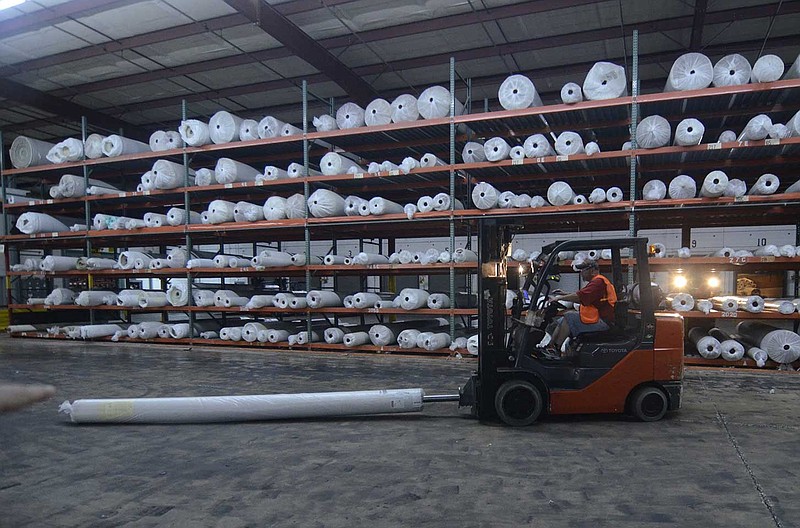Losses widened last year for carpet maker Dixie Group Inc. as the floorcovering market continues to shift from carpets and rugs to hard surfaces, especially to the growing luxury vinyl flooring market.
The Dalton, Georgia-based company said Thursday its losses last year more than doubled from 2017, but Dixie CEO Dan Frierson said he expects the company's profit improvement plan should improve results later this year.
Dixie reported a net loss of nearly $22.4 million, or $1.36 per share, on sales of $405 million in 2018. A year earlier, Dixie had a net loss of nearly $9.6 million, or 60 cents per share, on sale of $412.5 million.
Fourth quarter net losses totaled nearly $13.7 million, or 87 cents per share, compared with nearly $9.5 million, or 60 cents per share a year earlier.
Frierson said 2018 "was a year of change for both Dixie and the industry" as vinyl sales have grown and the company has worked to shift its production in response and combine commercial floorcovering operations for greater efficiency.
"The industry dynamics have shifted as we have seen the soft floorcovering market shrink in square feet while at the same time we saw the rapid rise of a new market segment with luxury vinyl flooring which has taken market share from all major flooring categories," Frierson said in the company's quarterly earnings report released early Thursday. "During this time, we have been shifting our emphasis to include hard surfaces products, primarily luxury vinyl flooring, in our product offering."
Frierson said the company has been improving production efficiency and streamlining management while changing its product mix. Dixie launched 67 carpet styles and 86 hard surface designs in 2018 to respond to the changing market, Frierson said.
While residential sales grew 1.8 percent in an otherwise flat industry market, Dixie's commercial product sales last year fell by 13.2 percent.
Frierson said the company began its consolidation of its commercial business with the closure of the Chickamauga, Georgia tufting plant at the end of 2018.
"We also began the process of exiting our Commerce, California Atlas tufting facilities this past fall, and will be completely out of those commercial tufting operations by the end of the first quarter of 2019," Frierson said in explaining other cost reduction measures. "The bulk of the Atlas equipment was transferred to our Atmore, Alabama commercial tufting operation with various other items moved to our Santa Ana, California and Eton, Georgia operations."
Frierson said Dixie also is moving its commercial rug operation and commercial samples support function from California to our Saraland facility near Mobile, Alabama, and has made staff cuts at its Atmore, Eton, Adairsville and Roanoke facilities "as we were able to take advantage of the increased productivity," Frierson said.
We are pleased with the progress we are making with our profit improvement plan and anticipate the bulk of the savings to be in place by the third quarter of 2019," Frierson said.
Dixie's profit improvement plan has helped boost the company's stock so far in 2019 by more than 60 percent from the lows reached at the end of last year.
But Dixie's shares remain less than half the price of a year ago and Dixie shares fell by 6 cents a share, or nearly 5.2 percent, to close Thursday at $1.10 per share.
Contace Dave Flessner at dflessner@timesfrepress.com or at 757-6340.
